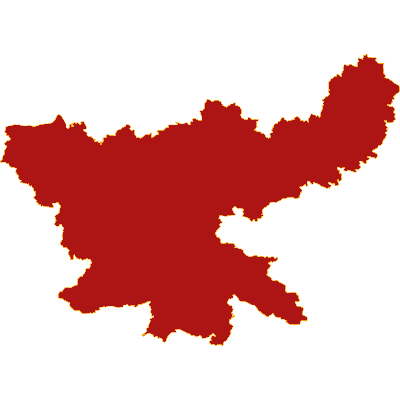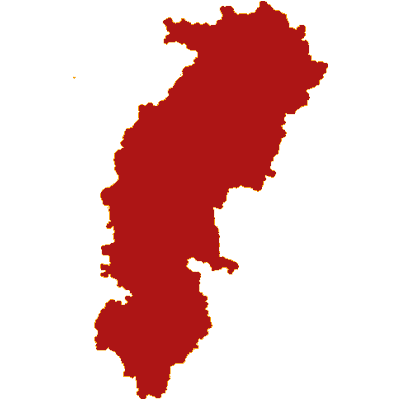Where we work
Our Reach
Udyogini has worked across the country – reaching out to more than 50,000 women from some of the remotest rural villages. Presently, we are active in about 200 villages in these five states – Rajasthan, Chhattisgarh, Jharkhand, Madhya Pradesh and Uttarakhand.
- Jharkhand
- Chhattisgarh
- Madhya Pradesh
- Uttarakhand

Jharkhand is one of the states in India with a high (26.3%) tribal population and also happens to be one of the extremist affected states. Considering the high concentration of vulnerable sections and poverty spread, Udyogini decided to intervene in this area and has been working for the promotion of livelihoods of tribal communities in the state since 2008.
Intervening in three districts of the state: Khunti, Gumla, Ranchi, Udyogini at present works with women in around 4040 households.

A fairly new state formed in 2000, over 70% of Chhattisgarh’s population resides in the rural areas. Most of the villages consist of tribal communities who are dependent on Non-Timber Forest Produce and Agriculture for their income. Women in the state are not involved in any alternate livelihood activities. They are outspoken yet succumb to male dominance in the family.
Looking at the scope of work in the state, Udyogini has established itself in five districts – Kanker, Korba, Raj Nandgaon, Durg, and Ballampur – covering the entirety of the state. Our interventions mainly involve identifying aspiring members of the community, bringing them together to form Women Enterprise Groups (WEG) and help them set-up an enterprise for income generation.

Udyogini’s longest presence has been in the central Indian state of Madhya Pradesh. Through our interventions, we have empowered over 180 women to start their own enterprises. In the 16 villages we work in the Mandla and Kalni districts, we have observed a downward trend in agriculture. While men are dependent on labour work for consistent income, women are not encouraged to start any alternate means of earning money.

Udyogini began operations in Uttarakhand in 2009, promoting wild honey production and agriculture-based enterprises like spices and herbs. At the time, it was observed, and this is still true today, that income from existing cash crops was declining due to a reduction in land and crop productivity due to wild animal attacks, natural calamities, market rates, and linkages. The area under cultivable wasteland grows every year due to a lack of cash crops that are resistant to wildlife and provide a cash income.
Uttarakhand is known for its biological and cultural diversity. This Himalayan state’s wide altitudinal range and geographical diversity support a variety of forest types, grasslands, and alpine meadows rich in medicinal and aromatic plants (MAPs).

